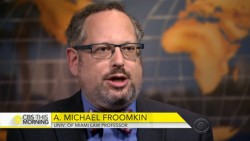FBI analysts gave consistently false testimony for 20 years, leading to hundreds of convictions, including at least 32 defendants sentenced to death. “Of those, 14 have been executed or died in prison.”
Yet the Washington Post manages to write an entire article about this conspiracy to pervert the course of justice without using the words “perjury” or “conspiracy”. Seems we’re calling it “flawed testimony” this year: FBI admits flaws in hair analysis over decades.
The issue is the (lack of) scientific validity and certainty of supposedly incriminating forensic evidence such as the comparison of hair samples and bite marks:
Of 28 examiners with the FBI Laboratory’s microscopic hair comparison unit, 26 overstated forensic matches in ways that favored prosecutors in more than 95 percent of the 268 trials reviewed so far, according to the National Association of Criminal Defense Lawyers (NACDL) and the Innocence Project, which are assisting the government with the country’s largest post-conviction review of questioned forensic evidence.
…
The findings likely scratch the surface. The FBI said as of mid-April that reviews of about 350 trial testimonies and 900 lab reports are nearly complete, with about 1,200 cases remaining.
The bureau said it is difficult to check cases before 1985, when files were computerized. It has been unable to review 700 cases because police or prosecutors did not respond to requests for information.
Also, the same FBI examiners whose work is under review taught 500 to 1,000 state and local crime lab analysts to testify in the same ways.
I suppose it is possible that in some cases the FBI examiners didn’t understand that they had been trained to lie, and in those cases it was merely a (in some cases literally fatal) denial of due process rather than perjury, due to a lack of mens rea. But surely at least some of the examiners, or the trainers, have to have known what they were doing?
Anyway, according to 18 U.S.C. § 3282, the statute of limitations for perjury is five years, and the most recent of these cases is 16 years old, so I guess everyone at the FBI is safe.

 The government’s attempt to get Apple to build a bespoke operating system so they can brute force access to an iPhone without it erasing its data has led the media to some of us who were in the first round of the crypto wars. Today was my turn. A few seconds on
The government’s attempt to get Apple to build a bespoke operating system so they can brute force access to an iPhone without it erasing its data has led the media to some of us who were in the first round of the crypto wars. Today was my turn. A few seconds on